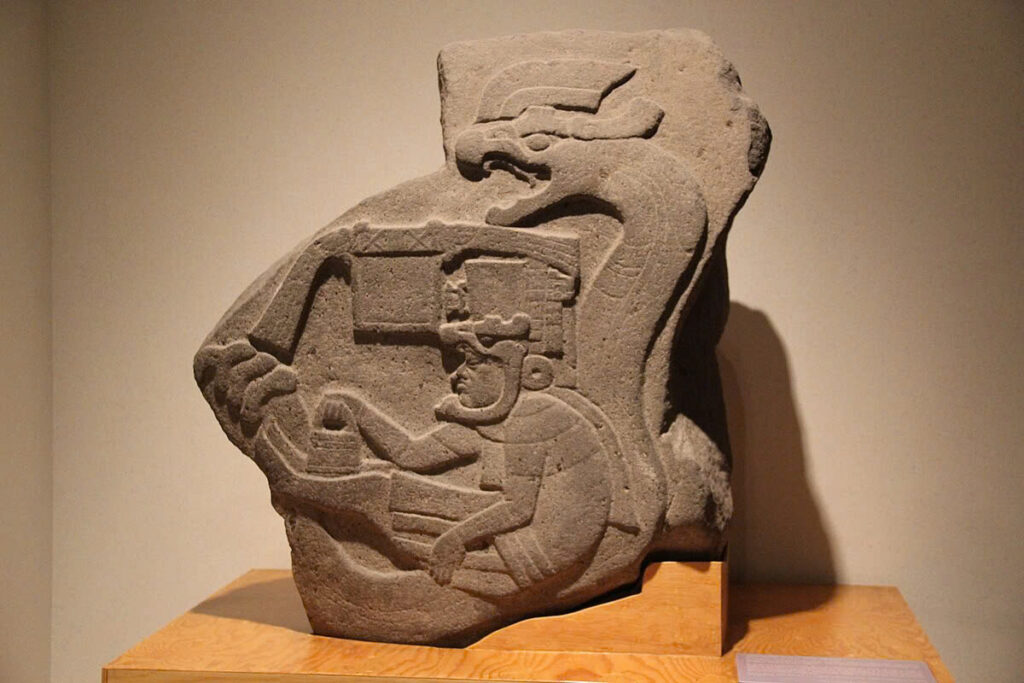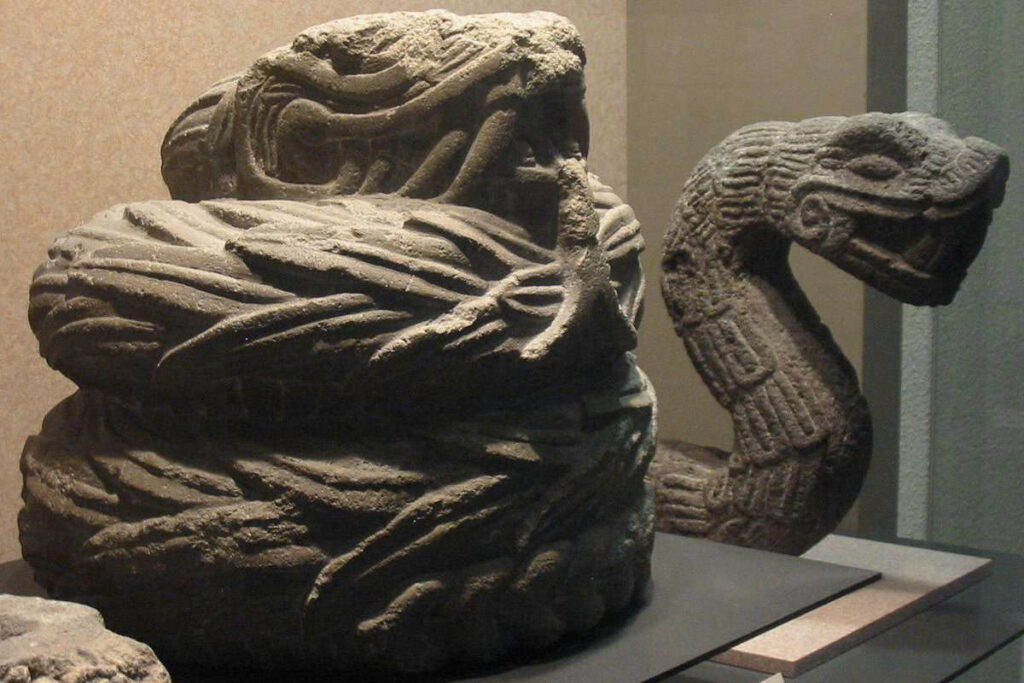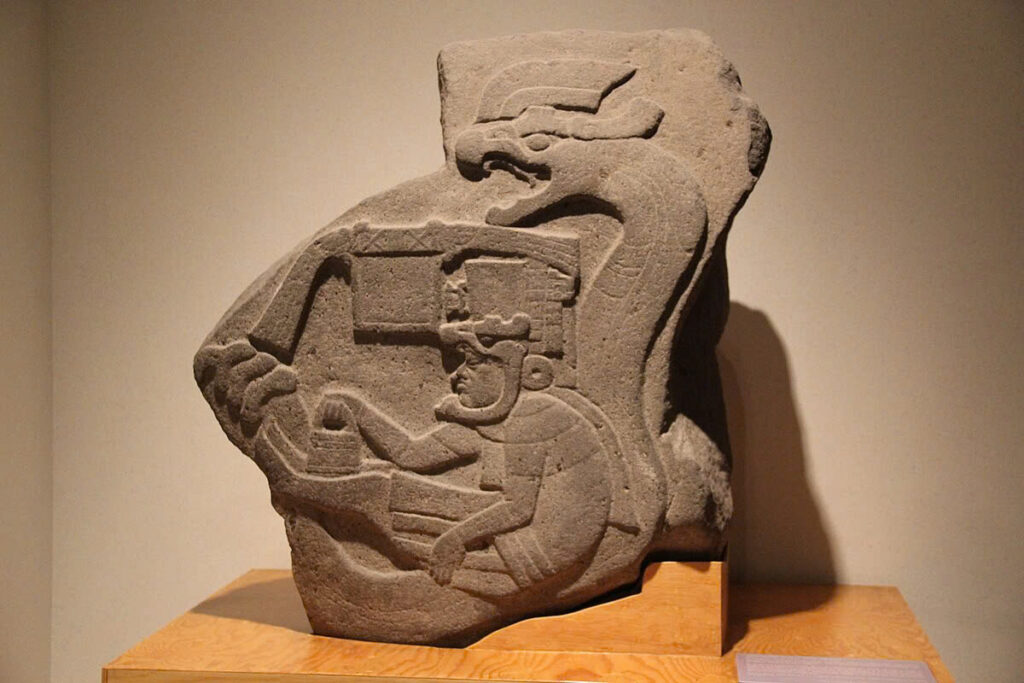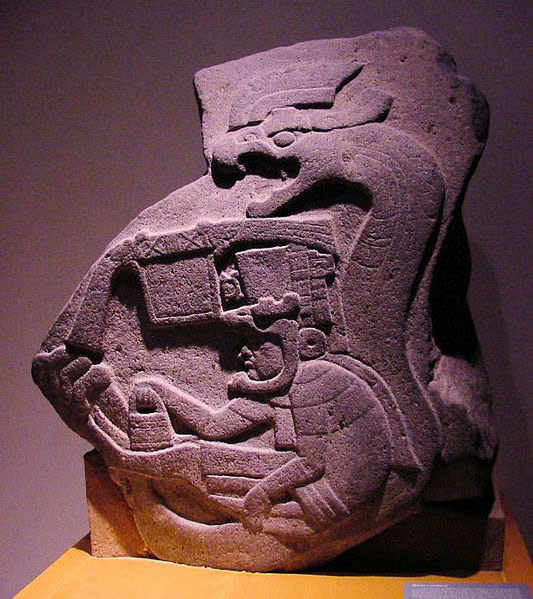The Ancient Artifact That Shaped Mesoamerican Mythology

In the heart of ancient Mexico, a remarkable stone carving known as Monument 19 stands as a testament to the ingenuity and spiritual depth of the Olmec civilization. Dating back to 900–400 BC, this artifact from La Venta holds a special place in Mesoamerican history.
The Birth of a Divine Symbol

Monument 19 bears the distinction of featuring the earliest known representation of the feathered serpent, a symbol that would go on to play a pivotal role in Mesoamerican mythology for centuries to come. The intricate carving depicts a figure, possibly a ruler or shaman, engaged in a mysterious interaction with this mythical creature.
A Window into Olmec Spirituality

The feathered serpent wasn’t merely a decorative motif for the Olmecs. It embodied complex themes central to their worldview:
- Fertility and abundance
- Agricultural prosperity
- The harmonious union of earth and sky
This powerful symbol laid the groundwork for later deities, such as the famous Quetzalcoatl, highlighting the enduring influence of Olmec culture on subsequent Mesoamerican traditions.
The Serpent’s Sacred Status

Archaeological findings suggest that the Olmecs held the feathered serpent in the highest regard. They associated it with:
- Leadership and authority
- The journey to the afterlife
Monument 19 not only showcases the Olmecs’ artistic prowess but also cements their position as the foundation upon which later Mesoamerican civilizations built their cultural identities.
A Timeless Legacy
Today, Monument 19 continues to captivate archaeologists, historians, and curious minds alike. It offers invaluable insights into the Olmec worldview and stands as a crucial piece in the puzzle of Mesoamerican cultural evolution. As we study this ancient artifact, we gain a deeper appreciation for the rich tapestry of beliefs and artistic expressions that have shaped the region’s history.

The story of Monument 19 reminds us that even the most ancient of symbols can have a lasting impact, bridging the gap between long-lost civilizations and our modern understanding of cultural heritage.

